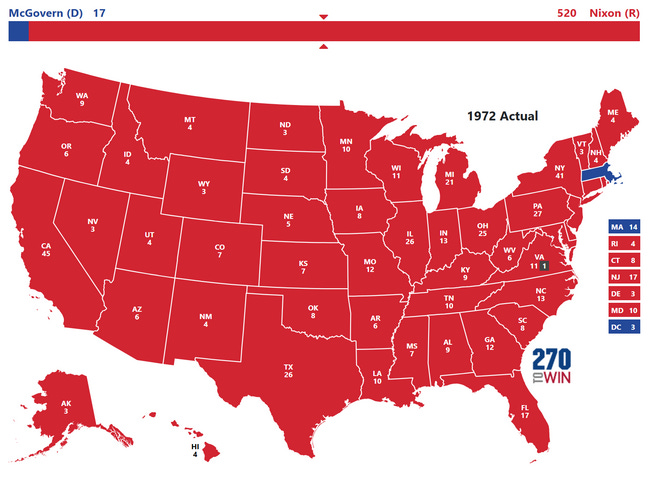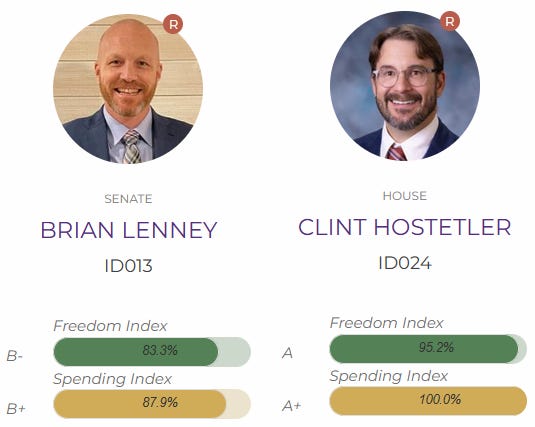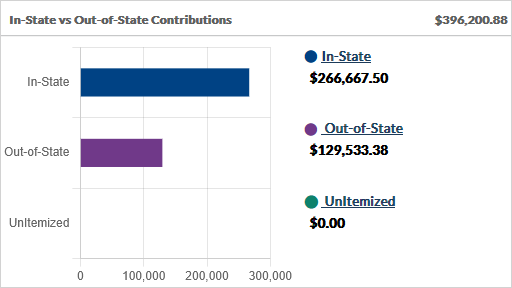On Influence
If you're not talking to your representatives, someone else is.
Representative government is a challenging affair. Lawmakers must walk a tightrope between answering to their constituents, following the law, and ultimately doing what is right for everybody. Senators and representatives each speak on behalf of the approximately 52,000 men, women, and children in each of Idaho’s 35 legislative districts. They also listen to their counterparts in the executive branch, who are tasked with implementing the laws they pass, as well as lobbyists and experts representing various industries and organizations. Each lawmaker has his or her own conscience to consider as well, shaped by religious, moral, and cultural philosophies.
Whenever a politician does what we want, we laud him for listening to the people. Whenever we disagree, we castigate him for putting special interests first. Yet the loudest voices do not always represent the majority. Your high school history textbook likely tells the story of the 1960s as a popular movement of people rising up, speaking truth to power, supporting civil rights and welfare while opposing the war in Vietnam. Yet the culmination of this era came in 1972, when Richard Nixon won reelection in a 49-state landslide, earning 18 million more votes than his Democratic opponent. This remains the widest total margin in American history.

Even today, Democrats often use the word “democracy” to refer to rule by Democrats rather than an actual popular mandate. This is why many Republicans recoil at the word, reminding everyone that the United States is a constitutional republic, not a direct democracy.
So how can we know the will of the people? After all, many people are checked out from the political system, too busy or too jaded to worry about the details. Many in Idaho cast their votes in November for whichever Republican candidate is on the ballot (while those in Boise vote for whichever Democrat), which is why the May primary is often the real election.
A lawmaker who casts a vote contrary to what some of his constituents wanted will be attacked as a turncoat or accused of being bought off by some special interest. Yet if that lawmaker is then reelected by his voters, does that not imply a mandate and endorsement?
Maybe. It’s complicated.
In the weeks leading up to President Donald Trump’s second inauguration, many Idaho Republicans wanted to see radical change in Congress. They loudly demanded that Sens. Mike Crapo and Jim Risch support Sen. Rick Scott of Florida for majority leader over the top contenders Sens. John Cornyn of Texas and John Thune of South Dakota. When Thune won, many online Idahoans expressed their frustration, especially with Risch, who is up for reelection next year. Some angrily promised to support a primary challenger.
Yet anyone who watches politics closely knows what a paper threat that was. Sen. Risch has a large war chest and influential supporters. The last time he faced a primary challenger was in 2014 when he won just under 80% of the vote. Defeating an incumbent United States senator is insanely difficult—just ask Scott Cleveland, who ran an independent campaign against Sen. Crapo in 2022, winning 8.4% of the vote. He earned support from nearly 50,000 Idaho voters, which was no small feat, but it was nowhere near enough to win. Crapo barely broke a sweat in that race.
Many of the loudest and most online conservative voices assume they speak for the majority, but election results tell a different story. I myself have felt frustrated with the way some Idaho Republicans vote, yet what am I to make of the fact that their constituents continue returning them to office? This leads to excuses such as accusations of voter fraud and ballot rigging, complaints about too much money being spent in politics, or suggestions that special interests, lobbyists, and PACs are putting their thumbs on the scale. While some of those things are undoubtedly true, the fact is that it’s ultimately up to the voters of each district who they want to represent them in the Capitol.
This is where the influence wars tend to heat up. Even though lawmakers represent the 52,000 people in their own district, their votes affect all of us. That means we all have an interest in ensuring that conservative candidates are elected throughout the state. This is why organizations such as Idaho Freedom PAC (IFPAC) were formed: to encourage voters to support the most conservative candidate possible. Other organizations, such as IFPAC’s counterpart Idaho Freedom Foundation (IFF), a 501(c)3 nonprofit, work to educate voters about conservative principles.
Of course, it’s not only conservatives who want to influence voters to reshape the Legislature. The Idaho Association of Commerce and Industry (IACI) engages in both education and political action to support policies that benefit its member businesses. The Idaho Education Association (IEA) does the same, trying to mold the Legislature to support its public school agenda. All of these interest groups operate statewide, attempting to convince voters in each district to support their preferred candidates.
It gets even more complex when we look beyond Idaho’s borders. Policies crafted in Idaho can affect neighboring states and, in turn, influence national policy. The principles of federalism mean that many policy ideas must be implemented at the state level, and various organizations have developed to influence state-level policy as a result. George Soros is notorious for spending money to elect prosecuting attorneys in the states who will ignore the law in pursuit of his dream of an “open society.”
The State Freedom Caucus Network (SFCN) was launched in December 2021 as a spinoff of the House Freedom Caucus, aiming to apply conservative policy ideas to state legislatures. The already-existing Idaho Freedom Caucus initially chose to affiliate with SFCN, increasing its reach and resources, but in 2024 broke away, with members saying it wasn’t worth the control the DC-based network attempted to exert. SFCN has since affiliated with the self-described Gang of 8.
Also closely allied with the Gang of 8 is Young Americans for Liberty (YAL), a Texas-based organization I’ve written about many times. YAL grew out of the Ron Paul Revolution, mobilizing thousands of libertarian-leaning young people into a national movement. Through its Hazlett Coalition, Make Liberty Win PAC (MLW), and its new Liberty Action 501(c)4, YAL is working to move the needle in a more libertarian direction in statehouses throughout the country. Last year, MLW spent hundreds of thousands of dollars attempting to unseat legislative leaders such as then-Senate President Pro Tempore Chuck Winder and Speaker of the House Mike Moyle.
Citizens Alliance grew from the same fertile ground as YAL. It was founded by Cliff Maloney, who had previously served as president of YAL. Citizens Alliance aimed to build conservative movements in key states, including Idaho. Maloney himself spearheaded a Citizens Alliance initiative called the Pennsylvania Chase, raising money and recruiting volunteers to knock on hundreds of thousands of doors in a get-out-the-vote operation supporting President Trump’s reelection campaign.
Citizens Alliance of Idaho (CAI) was established in 2021 and features a pledge with what it calls ten simple commitments inspired by our state and federal constitutions. CAI invited legislators to sign the pledge, and its associated PAC sends door-knockers in support of pledge signers and against those who most egregiously run afoul of conservative principles. It was a privilege to be part of the CAI team as a contributing editor to the Idaho Signal program during the 2024 legislative session.
Of course, out-of-state left-wing groups also play in Idaho. The ranked-choice voting ballot initiative we defeated last year with almost 70% of the vote was supported with millions of dollars from outside organizations seeking to change how we elect representatives in Idaho. As with most state-level national campaigns, the goal was to reshape one of the reddest states in the country to allow left-wing organizations to gain a foothold. Thankfully, they failed, despite all the money they spent.
When out-of-state organizations play in our sandbox, the question we have to ask is: what’s their goal? Are they supporting grassroots conservatives, or attempting to exert control? The answer depends on the observer. I saw an interesting exchange of ideas on this recently between two elected legislators, Sen. Brian Lenney and Rep. Clint Hostetler.
Lenney was formerly a member of the Idaho Freedom Caucus and took a hardline stance against SFCN and YAL last year. However, he has since stepped away from the caucus, preferring to chart his own path. Freshman Hostetler is a member of the Gang of 8, which is now affiliated with SFCN and closely allied with YAL.
Last Friday, Sen. Lenney accused YAL of attempting to smuggle libertarian ideas such as drug legalization into Idaho:
So why are a handful of Republicans in the Idaho legislature affiliating with this group?
YAL is using them. Using their credibility. Using their Republican credentials to push an agenda that directly contradicts what Idaho Republicans stand for.
YAL isn’t hiding what they stand for.
I was with this YAL group until I wasn’t. Once I saw what they REALLY stood for (fun fact, you see this at their conference, they are UNAPOLOGETICALLY “Big L” Libertarians) I knew I had to leave.
I call upon all my Republican colleagues to do the same. YAL is exploiting your good name to push policies you don’t believe in. They’re using your association to make their libertarian agenda look like mainstream conservatism.
Don’t let them.
Disassociate from Young Americans for Liberty. Their values are not our values. Their platform is not our platform.
On Tuesday, Rep. Hostetler responded, more or less:
Why do we have people, even proclaiming conservative legislators, in Idaho incessantly and obsessively railing against groups, out of state or not, who are trying to push conservative policies and legislation like…gasp, fiscal responsibility, smaller government and lower taxes for the people of Idaho. Isn’t that a good thing? Won’t those preserve the state for the future, aren’t those the ideologies and policies we align with? Why, when at the same time we have other out of state and even international companies, like Bayer, funding some of our elected officials and who had actual people roaming the halls of our capitol pushing legislation for immunity to spray poison on our food and in our skies? Which one is the greater threat to Idaho? And Bayer is just one example. Objectively you have to start asking questions…why the focus on the former and not the latter?
Is there something deeper going on? Are these people holding a grudge, obfuscating, or carrying someone else’s water? Hebrews reminds us to make sure that “…not root of bitterness springs up and causes trouble, and by it many become defiled.” Any of those above options are unacceptable and have to be called out. Objectively, as conservatives, and those who have taken an oath to represent our people, we have to keep our focus on the real threats to Idaho, her future and our people. It’s time to start asking the hard questions, and these questions aren’t even hard…things aren’t adding up when you do the basic math.
I will continue to support any group which pushes conservative policies and looks to help us in our fight to keep Idaho fiscally and culturally secure. It is an absolute necessity. Question all those who don’t.
The thing to notice here is that Lenney and Hostetler don’t disagree on much ideologically. I don’t believe they disagree on many policy positions either. IFF’s Freedom Index, which rates bills from a conservative/libertarian perspective, puts them both in the top quintile of legislators.
So what’s the beef here? It’s all about influence. Lenney believes that SFCN and YAL are attempting to exert too much control over Idaho lawmakers, while Hostetler believes these organizations give conservatives necessary resources to get out our message. While they disagree on these two groups, both are CAI pledge signers in good standing and both were endorsed by IFPAC in the 2024 primary election.
I’m not asking you to take sides between two conservative legislators; rather, I want to raise questions that you as a citizen and a voter should consider. What does it mean to influence legislators and voters? Is some influence illegitimate? How are voters to discern truth when they hear multiple versions of every story, some outright lies? Does it affect your perception of a candidate to know who gives them money?
The Secretary of State’s Sunshine website is a treasure trove of data about who donates to candidates, how they spend their money, and what PACs are doing in support of or against candidates in Idaho. Front and center on each candidate’s profile page is a breakdown of how much money came from in-state versus out-of-state. For example, here is that breakdown from Gov. Brad Little’s page:
The ratio of in-state versus out-of-state donations can be a reasonable barometer for grassroots support, though it’s not perfect. PACs also engage in independent expenditures, actions done on behalf of or against candidates without direct involvement from the campaign. YAL’s PAC, Make Liberty Win, spent more than $100,000 in advertising against Speaker Moyle last year. Much of the funding for YAL and MLW comes from outside Idaho.
Remember that 501(c)3 organizations such as IFF are not required to disclose their donors, which is how it should be. Many leftists in Idaho would love to obtain IFF’s donor list to engage in public pressure and shaming. 501(c)4 organizations only have to disclose donor information if donations are used for direct electioneering purposes, while PACs must always disclose donors. Electioneering means urging voters to directly support or oppose a candidate. Many c4s attempt to skirt this requirement, which is why you’ll often see mailers declaring how awful your representative is and urging you to call them—but not saying “Vote for X.”
This article is long enough already, so I’ll cut it off here. Again, I’m not trying to make you take sides; I want to explain a little about how the sausage is made. The more informed voters are about politics, the better they can decide where to go from here.
My columns reflect my opinions on various issues, but my vision for the Gem State Chronicle is much more than just a Substack newsletter. I want Idaho Insider to become the go-to one-stop shop for information about our elected officials and government. The American Republic only succeeds if citizens are involved, and citizens can only truly be involved if they are informed.
It’s not a crime to influence elected representatives—in fact, it’s something we should all do. Yet knowing who is influencing whom is an important data point when examining the political landscape. Put yourself in the shoes of your state senator or representative, and imagine the cacophony of voices attempting to push you one way or another. If you are not consistently talking with your lawmakers, you can be sure someone else is—and they can only make decisions based on the information they have.
Get involved. Our Republic depends on it!




Nassim Taleb on skin in the game helps greatly in the understanding of motives.
Will these out of state money orgs have to live with the consequences of their influence? What do they have to lose?